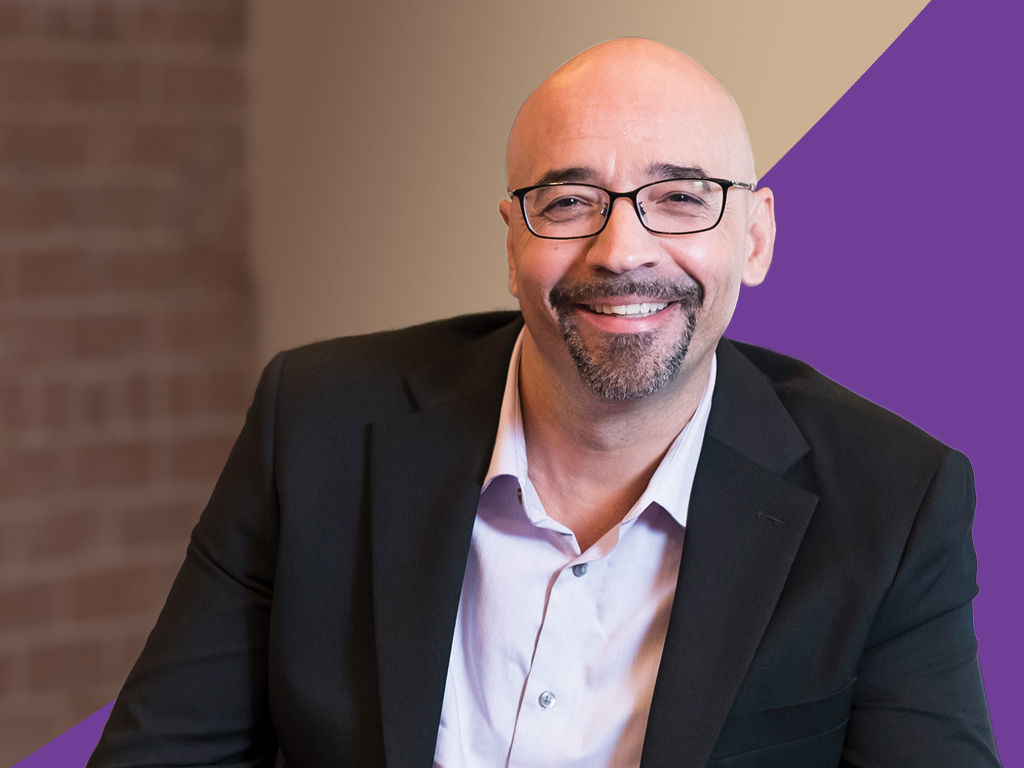Show Menu
Choose Your Location
You are now leaving the Viatris page for a Viatris affiliate site or third party site that is solely responsible for its content, including its compliance with guidelines applicable in certain geographies. Links to Viatris affiliate sites and third party sites are provided as a resource to our visitors and may not be governed by the same regulatory requirements applicable to this site and unaffiliated third party sites are subject to their own terms and data protection notices and practices. Moreover, if their third party site is subject to other country laws, regulatory requirements, data protection requirements or medical practices may differ between countries and the information provided therein may not be suitable for use in your country.

Patient Inspiration
By: Niki Kapsambelis
November 14, 2022
The first clue Duane Ruggier had that something was wrong was when his left hand started going rogue.
It was his non-dominant hand, so he didn’t need it for writing; but sometimes, for no reason at all, it dropped things, like it suddenly wasn’t connected to the rest of his body.
For a while, it was easy to shrug off: he was a senior in college, healthy and athletic. Then his leg started to disconnect, too.
“When I would walk, I noticed that I couldn’t quite – there seemed to be, like, a hole in my stride,” Duane recalls.
But it wasn’t until he was in his first year of law school that he became really worried. The vision in his left eye developed permanent blotches. To read, he had to move his head to view the text from the clear parts of his eye.
A litany of medical tests at first revealed nothing. But Duane knew something was drastically off. Finally, he got his answer when a specialist at the University of Pittsburgh saw plaques on his brain during an MRI: Duane had multiple sclerosis.
“Oddly enough, when he told me that I had MS, the diagnosis was somewhat of a relief,” Duane says. “Because I thought, ‘I’ve got a brain tumor.’”
Worldwide, more than 2.8 million people have MS, according to the National Multiple Sclerosis Society. Close to 1 million of them, like Duane, live in the United States. An unpredictable disease of the central nervous system, its symptoms vary from person to person but can include disabling fatigue, mobility challenges and vision issues. Early diagnosis and treatment are key to minimizing disability.
At the time of his diagnosis, Duane was 27 years old, newly married and a new father. Today, at 51, his three children are grown, he has remarried, and he is a partner in the firm where he once worked as a law clerk in Charleston, West Virginia. He has accomplished much in those intervening years, something he attributes to the support of his family and friends, improvements to medications, and a determination to push forward. Click here to watch Duane’s story.
“Life’s hard; you’re going to have problems. Just keep going and get out the door,” he says. “Don’t let your life stop. Keep your life moving forward, no matter what your problem is … nobody has ever gotten better by just lying in bed and doing nothing. I’ve never believed that.”
While there currently is no cure for MS, science has progressed significantly in developing treatments to help patients, and access to treatment has widened: “The medications now over the past 27 years have improved vastly,” Duane said.
As a lawyer, he has championed the cause of people with disabilities, such as advocating for a wheelchair-accessible bathroom in the West Virginia Supreme Court building and wheelchair-navigable shopping carts at supermarkets.
These improvements benefit a variety of people, including the elderly and those who are recovering from injuries, he says: “You just want to be able to do it yourself and be independent. And if you can’t do that, you’re not going to go,” which is a loss to society as well as the individual.
His law firm sponsors a charity golf tournament named for Duane to raise money for the MS Society and supports legislation prioritized by the society on behalf of MS patients.
Today, Duane uses a power chair but continues to maintain an active and productive lifestyle. He strives to serve as an example not only for other people with MS, but also his children.
“You’re faced with problems in life. You’re faced with issues,” he explains. “But you’ve got to overcome them.”